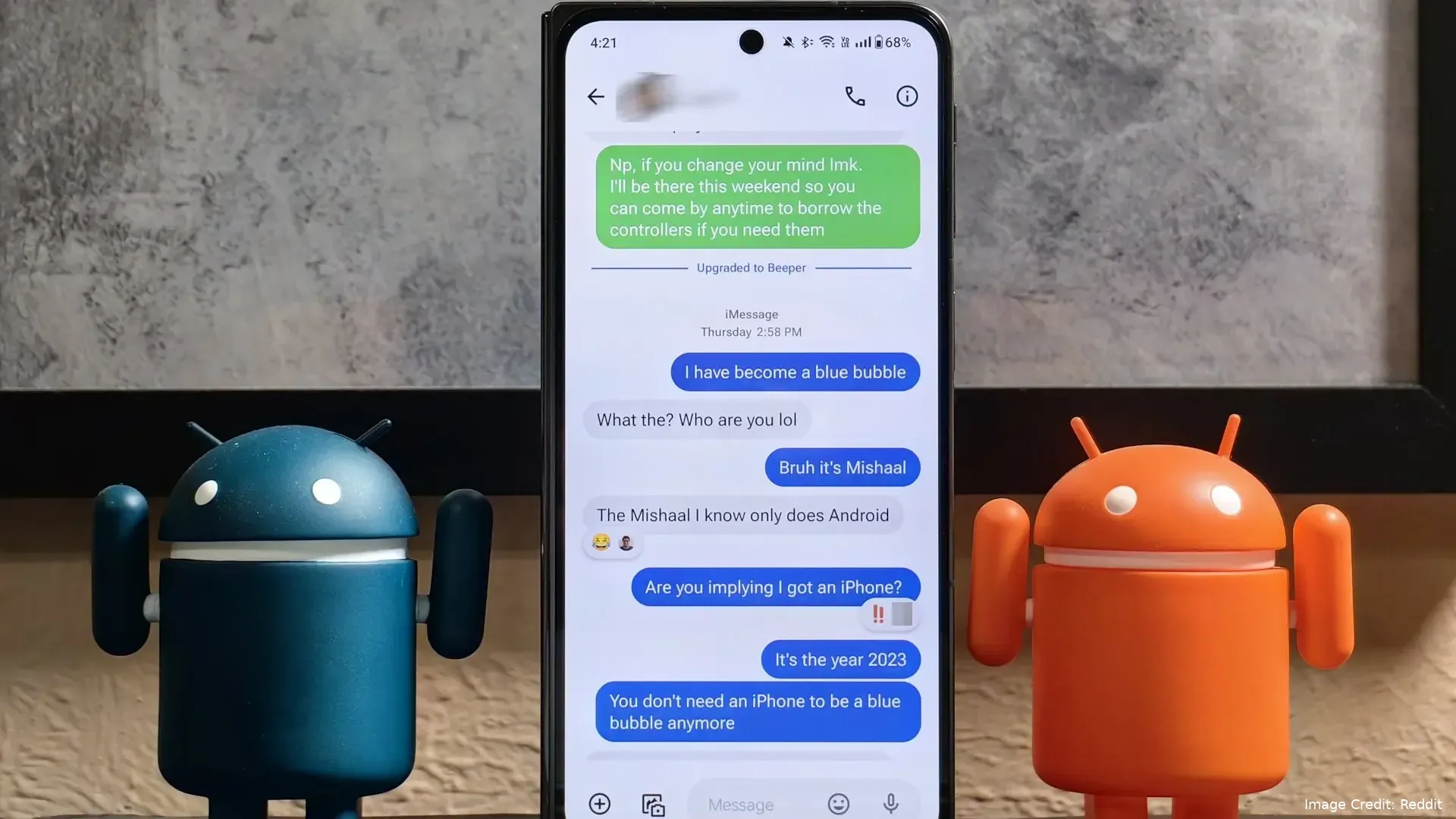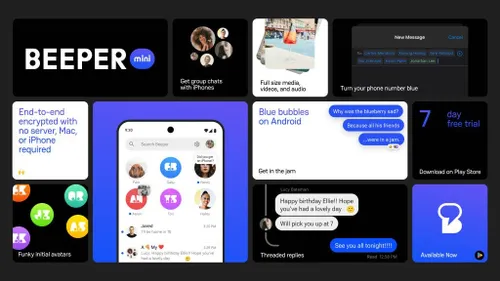
Beeper Mini, the short-lived Android app that promised to bring the coveted blue bubble iMessage experience to non-Apple users, has been abruptly shut down by Apple. The app, which launched just days ago. Ingeniously reverse-engineered Apple's protocol to allow Android users to directly connect to the iMessage service. However, Apple swiftly blocked this workaround, citing concerns about user security and privacy.
iMessage Showdown: Beeper Mini Blocked by Apple, Leaving Android Users in the Blue

Apple claims Beeper Mini exploited "fake credentials" to gain access to iMessage, posing risks like metadata exposure and unwanted messages. The company's stance aligns with its long-standing strategy of keeping iMessage exclusive to its ecosystem, frustrating many Android users who are locked out of the blue bubble experience.
Beeper founder Eric Migicovsky responded to Apple's move with disappointment and confusion. He offered to share Beeper's code for a security review, emphasizing that his service enabled secure messaging between iPhone and Android users, an option currently unavailable with standard SMS. He questioned Apple's commitment to user privacy and security, suggesting their actions contradict their stated values.
While Beeper Cloud, the company's core service, remains functional, Beeper Mini's future is uncertain. Migicovsky remains optimistic, hinting at potential solutions and hoping public opinion will pressure Apple to change course.
So, the iMessage exclusivity debate continues to spark controversy. Apple's plans to implement the RCS messaging standard offer a glimmer of hope for cross-platform communication. However, it remains to see whether Apple will open iMessage to RCS compatibility. The coming weeks will likely shed more light on the future of messaging across different platforms.
This incident highlights the complex relationship between technology companies and their users. While Apple emphasizes security and privacy concerns, some see their actions as a veiled attempt to maintain a competitive advantage. Regardless of the motives, the iMessage saga serves as a reminder of the challenges and opportunities in fostering open and accessible communication across diverse technological landscapes.
Loading






